Meet the Team
Professor Alice Mah: Principal Investigator
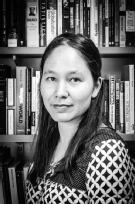 Alice Mah is Professor of Sociology at Warwick and Principal Investigator of Toxic Expertise. She holds a PhD in Sociology from the London School of Economics. Her wide-ranging research interests in urban, environmental, and political sociology are situated at the intersection of critical political economy, multi-site ethnography, and environmental justice studies. She is the author of Industrial Ruination, Community, and Place (2012), winner of the 2013 BSA Philip Abrams Memorial Prize, Port Cities and Global Legacies (2014), and Toxic Truths: Environmental Justice and Citizen Science in a Post-Truth Age (with Thom Davies, 2020). Currently Alice is working on a book entitled Petrochemical Planet: Multiscalar Battles of Industrial Transformation, under contract with Duke University Press, drawing on the findings of the Toxic Expertise project.
Alice Mah is Professor of Sociology at Warwick and Principal Investigator of Toxic Expertise. She holds a PhD in Sociology from the London School of Economics. Her wide-ranging research interests in urban, environmental, and political sociology are situated at the intersection of critical political economy, multi-site ethnography, and environmental justice studies. She is the author of Industrial Ruination, Community, and Place (2012), winner of the 2013 BSA Philip Abrams Memorial Prize, Port Cities and Global Legacies (2014), and Toxic Truths: Environmental Justice and Citizen Science in a Post-Truth Age (with Thom Davies, 2020). Currently Alice is working on a book entitled Petrochemical Planet: Multiscalar Battles of Industrial Transformation, under contract with Duke University Press, drawing on the findings of the Toxic Expertise project.
You can contact Alice via email on A.A.Mah@warwick.ac.uk
Dr David Brown: Research Assistant (2018-2020)
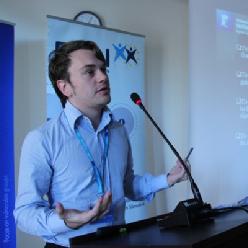
David Brown joined the Toxic Expertise team in November 2018, and is a researcher with strong interests in issues of environmental and climate justice, particularly those related to industrial pollution and deforestation. Broadly, he is fascinated by the connections between social injustices and environmental challenges. David recently completed a PhD at Coventry University that empirically examined the REDD+ (Reducing Emissions from Deforestation and Forest Degradation) policy regime and ‘avoided deforestation’ through a climate justice lens. As part of this research he conducted a multiscalar, rights-based and climate justice-led examination of the REDD+ partnership between Norway and Ethiopia. David recently worked as a researcher on the ‘anti-slavery ecosystem’ project at the University of Nottingham’s Rights Lab, in which he unpacked the tight connections between modern slavery, environmental destruction and climate change.
In this role on the ‘Toxic Expertise’ project, David is primarily working on compiling qualitative case reports of key petrochemical sites globally, with an emphasis on their local community impacts (e.g. health, environmental) and the related emergence of community mobilisation. These are to be used as part of a publicly-available and interactive online web resource. He also assistis the team in some quantitative research and editing the ‘Toxic News’ online magazine.
You can contact David via email on david.brown.1@warwick.ac.uk
Dr Lorenzo Feltrin: Research Assistant (2019-2020)
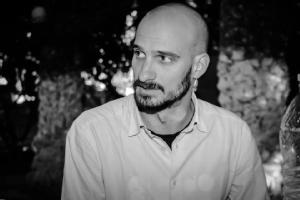
Lorenzo Feltrin started working on the Toxic Expertise project in January 2019. He received a PhD in Politics and International Studies at the University of Warwick in January 2019. His thesis investigates the role of the trade unions in the 2011 Uprisings of Morocco and Tunisia. His research interests are in the areas of labour, social movements, and political ecology. His work combines historical sociology with industrial relations and political economy. Lorenzo’s role on the project is that of completing qualitative reports on petrochemical complexes worldwide and to realise a case study on Venice’s Porto Marghera petrochemical hub, as well as assisting the team in different tasks.
Lorenzo has published the following peer-reviewed articles:
Feltrin, L (2018): “The Struggles of Precarious Youth in Tunisia: The Case of the Kerkennah Movement”, Review of African Political Economy, 45(155), pp. 44-63.
Feltrin, L (2019): “Labour and Democracy in the Maghreb: The Moroccan and Tunisian Trade Unions in the 2011 Arab Uprisings”, Economic and Industrial Democracy, 40(1), pp. 42-64.
You can contact Lorenzo via email on lorenzo dot feltrin at warwick dot ac dot uk.
Dr Thomas Verbeek: Research Fellow (2017-2019)
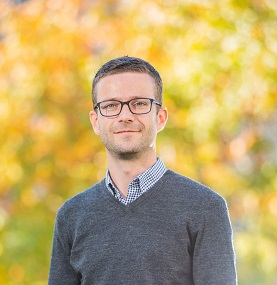 Dr Thomas Verbeek obtained his PhD in Urban Planning at the Centre for Mobility and Spatial Planning at Ghent University (Belgium) in 2017. He also holds a MSc in Geography and in Urban Planning from Ghent University. His research interests include environmental health, urban governance and spatial justice. Within these fields he prefers to apply quantitative research methods to examine important policy issues.His dissertation, entitled “Living Cities: Reconnecting Environmental Health and Urban Planning”, aimed to move beyond the lock-in of public health and urban planning and explore new approaches to deal with environmental health concerns in planning practice. Building on complexity theory, an environmental justice framework was proposed to localize environmentally unhealthy situations, and a matrix of planning strategies was presented to address these situations. The empirical research framework consisted of interviews, spatial data analysis, documentary analysis and a residents’ survey. The empirical part focused on the problem of local air pollution and traffic noise in the city of Ghent, in close collaboration with the city administrations and a local citizen initiative. By combining quantitative with qualitative results, case-specific and general policy recommendations were formulated that can lead to a more central place for health in urban planning.
Dr Thomas Verbeek obtained his PhD in Urban Planning at the Centre for Mobility and Spatial Planning at Ghent University (Belgium) in 2017. He also holds a MSc in Geography and in Urban Planning from Ghent University. His research interests include environmental health, urban governance and spatial justice. Within these fields he prefers to apply quantitative research methods to examine important policy issues.His dissertation, entitled “Living Cities: Reconnecting Environmental Health and Urban Planning”, aimed to move beyond the lock-in of public health and urban planning and explore new approaches to deal with environmental health concerns in planning practice. Building on complexity theory, an environmental justice framework was proposed to localize environmentally unhealthy situations, and a matrix of planning strategies was presented to address these situations. The empirical research framework consisted of interviews, spatial data analysis, documentary analysis and a residents’ survey. The empirical part focused on the problem of local air pollution and traffic noise in the city of Ghent, in close collaboration with the city administrations and a local citizen initiative. By combining quantitative with qualitative results, case-specific and general policy recommendations were formulated that can lead to a more central place for health in urban planning.
Thomas was a research fellow on Toxic Expertise between 2017 and 2019, applying quantitative research methods to analyse toxic pollution and its context at different spatial levels, with a critical view on data collection. Thomas is currently a Leverhulme Early Career Fellow at the University of Sheffield.
Dr Calvin Jephcote: Research Fellow (2018-2019)
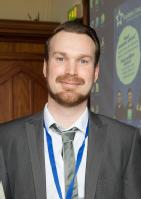 Dr Calvin Jephcote is a socio-environmental scientist with academic and consultancy expertise in the disciplines of environmental epidemiology, GIScience and aspects of air quality management. Calvin’s research specialisms relate to the identification, management and analysis of geocoded ‘big’ datasets (i.e. census, NHS patient records, panel surveys and emission inventories) for traditional statistical evaluation, conducted alongside advanced geostatistical practices ranging from cluster and boundary detection, to multi-level and locally weighted regression.
Dr Calvin Jephcote is a socio-environmental scientist with academic and consultancy expertise in the disciplines of environmental epidemiology, GIScience and aspects of air quality management. Calvin’s research specialisms relate to the identification, management and analysis of geocoded ‘big’ datasets (i.e. census, NHS patient records, panel surveys and emission inventories) for traditional statistical evaluation, conducted alongside advanced geostatistical practices ranging from cluster and boundary detection, to multi-level and locally weighted regression.
Calvin completed his EPSRC funded PhD at the University of Leeds in 2013, focusing his research on the ‘geostatistical modelling of health inequalities associated with exposure to road-transport emissions’. Through considering spatial variations in children’s respiratory health, Calvin’s doctoral research aimed to address the inadequacies of traditional temporal modelling practices in capturing Pearce et al’s (2010) ‘triple jeopardy’ of social, environment and health inequalities.
In addition, Calvin holds a MSc in Air Pollution Management & Control from the University of Birmingham. He has commercial project management experience through previous employment as an air quality consultant at Ricardo Energy & Environment.
In 2016 Calvin was employed as a Research Fellow by the University of Surrey, on a prestigious EU Horizon 2020 project investigating the role of youth migration in maximising opportunities for individuals, labour markets and regions across Europe. Research tasks included the: (a) management and cleaning of 30,000 panel survey questionnaires, (b) design of spatially inclusive quantitative research methods – survey weights, Bayesian models, ordinal regression, and (c) to lead the deliverable of scientific publications.
Calvin worked for the project between 2018 and 2019, and is currently a postdoctoral research fellow at the University of Leicester.

Dr Loretta Lou: Research Fellow (2017-2018)
Dr Loretta Lou worked on the Toxic Expertise project from November 2017 to December 2018, and has continued to contribute to the project.
Loretta currently works is at the Department of Sociology, University of Macau, as a Lecturer and UM Macao Fellow in Social Sciences.
Her research interests lie in the areas of environment, well-being, social movements, morality and ethics. Geographically she focuses on Greater China, including Hong Kong, Macau, and Taiwan. After she received her DPhil in Anthropology from the University of Oxford, she worked as a Research Fellow at the University of Warwick before joining the University of Macau as a Lecturer & Macao Fellow in Social Sciences.
Loretta's doctoral project was an ethnographic study of a new way of living called ‘Green Living’ in Hong Kong. She was interested in the implications of Green Living for self-understanding, social relations, everyday ethics, social movements, and the ways these domains were being shaped by Hong Kong’s social and political climate since the handover in 1997. Building on her previous research on environmentalism in Asia, her postdoctoral research at Warwick focused on the ways Chinese people make sense of toxic pollution, their everyday experiences of (in)justice, and their psychological coping mechanisms. More broadly, her research in China and Hong Kong have led her to explore notions of responsibility and the politics of complicity and victimhood in contemporary China.
A list of Loretta's recent publications can be found here.
Dr Thom Davies: Research Fellow (2015-2018)
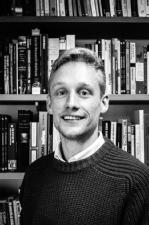 Dr Thom Davies is a human geographer and photographer interested in issues related to environmental justice, marginalisation, exclusion and risk perception. He is currently Lecturer in Human Geography at the University of Nottingham. Thom worked as a Research Fellow for the Toxic Expertise project at Warwick from 2015 until 2018. He researched the contested expertise surrounding the petrochemical industry in Europe and the USA, with an ethnographic focus on fenceline communities who live in ‘Cancer Alley’, Louisiana. Prior to joining Warwick, Thom completed his CEELBAS funded PhD at the School of Geography, Earth and Environmental Sciences at the University of Birmingham in 2015. His thesis research involved in-depth ethnographic research with communities who live around the Chernobyl Nuclear Exclusion Zone in north-central Ukraine, where he employed a number of visual and participatory research methods.
Dr Thom Davies is a human geographer and photographer interested in issues related to environmental justice, marginalisation, exclusion and risk perception. He is currently Lecturer in Human Geography at the University of Nottingham. Thom worked as a Research Fellow for the Toxic Expertise project at Warwick from 2015 until 2018. He researched the contested expertise surrounding the petrochemical industry in Europe and the USA, with an ethnographic focus on fenceline communities who live in ‘Cancer Alley’, Louisiana. Prior to joining Warwick, Thom completed his CEELBAS funded PhD at the School of Geography, Earth and Environmental Sciences at the University of Birmingham in 2015. His thesis research involved in-depth ethnographic research with communities who live around the Chernobyl Nuclear Exclusion Zone in north-central Ukraine, where he employed a number of visual and participatory research methods.
In 2014, Thom was awarded a scholarship from the Japanese Society for the Promotion of Science (JSPS) to conduct comparative qualitative research in Fukushima with communities afflicted by the 2011 nuclear accident. During his JSPS scholarship he was based at the University of Tokyo, and interviewed evacuees, NGOs, clean-up workers and farmers who have refused to leave the Fukushima Exclusion Zone. More recently, Thom was awarded urgency funding from the ESRC to research the ‘new Jungle’ refugee camp in Calais, northern France. He worked with public health experts and NGOs to produce the first academic study of the informal migrant camp, looking at environmental health conditions in the camp including microbiological risks and air pollution.
Thom worked on the Toxic Expertise project from September 2015 to July 2018, and has continued to contribute to the project as an Honorary Research Fellow.
Dr Cynthia Xinhong Wang: Research Fellow (2015-2017)
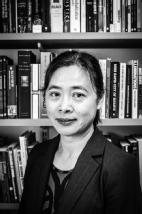 Dr Cynthia Wang completed her PhD in Social Sciences (China Studies) at the Centre for East Asian studies, University of Turku, Finland. She also holds an MSc (International Human Rights Law) Åbo Akademi, Finland, and an LLB (Chinese Law) Tsinghua University, China. Her doctoral dissertation is entitled "Open Environmental Information Upon Disclosure Request in China: The Paradox of Legal Mobilization". In her dissertation, she took a realist view that law is part of politics and argued that Chinese citizens and environmental organizations have been actively engaged themselves in utilizing the new information disclosure laws to push government agencies to comply with the laws, thus constituting a legal mobilization and making social and political changes. Cynthia examined how people from different backgrounds, inter alia, petrochemical representatives, scientific and legal professionals, citizens and activists, think, talk, and act regarding the environmental impact of petrochemical plants, as well as environmental pollution and environmental justice in China. Her research interests include open government information, environmental law, environmental justice and human rights law. Cynthia was a Research Fellow for the Toxic Expertise project from 2015-2017, and has continued to contribute to the project.
Dr Cynthia Wang completed her PhD in Social Sciences (China Studies) at the Centre for East Asian studies, University of Turku, Finland. She also holds an MSc (International Human Rights Law) Åbo Akademi, Finland, and an LLB (Chinese Law) Tsinghua University, China. Her doctoral dissertation is entitled "Open Environmental Information Upon Disclosure Request in China: The Paradox of Legal Mobilization". In her dissertation, she took a realist view that law is part of politics and argued that Chinese citizens and environmental organizations have been actively engaged themselves in utilizing the new information disclosure laws to push government agencies to comply with the laws, thus constituting a legal mobilization and making social and political changes. Cynthia examined how people from different backgrounds, inter alia, petrochemical representatives, scientific and legal professionals, citizens and activists, think, talk, and act regarding the environmental impact of petrochemical plants, as well as environmental pollution and environmental justice in China. Her research interests include open government information, environmental law, environmental justice and human rights law. Cynthia was a Research Fellow for the Toxic Expertise project from 2015-2017, and has continued to contribute to the project.
